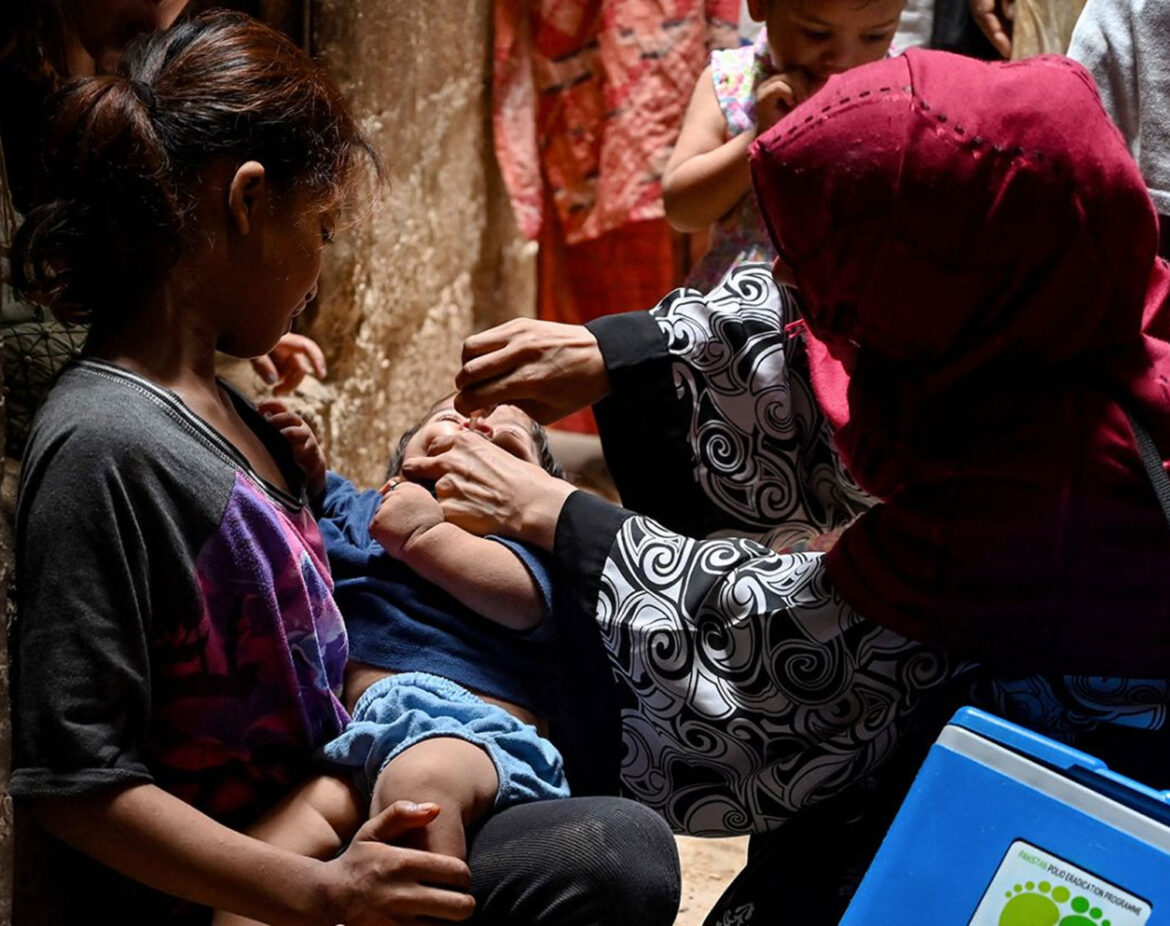The primary reasons behind the missed vaccinations were refusal by parents or guardians to vaccinate their children, along with the unavailability of families due to travel during the campaign period.
This year, Pakistan has reported 48 polio cases, with 23 in Balochistan, 13 in Sindh, 10 in Khyber Pakhtunkhwa (KP), and one each from Punjab and Islamabad. The rising number of cases led the government to launch a nationwide vaccination effort from October 28 to November 3, aiming to immunize over 45 million children.
Despite significant progress in reducing polio cases in recent years, the disease remains endemic in Pakistan, which, along with Afghanistan, is one of only two countries where polio continues to pose a major health threat. The vaccination campaign faces numerous challenges, including misinformation, vaccine refusal, and violent attacks on health workers by militants.
Malik Mukhtar Ahmed Bharath, Pakistan’s coordinator for national health services, confirmed to Arab News that the government is committed to finding and vaccinating the children who missed out during the drive. “We will chase them, we will track them, and we will vaccinate them,” Bharath asserted.
The resurgence of polio cases this year is alarming, especially considering that only six cases were reported in 2023. The increase is partly attributed to the movement of unvaccinated Afghan refugees who carried the virus, as well as the difficult security situation in certain regions of the country.
Attacks on polio teams have escalated in recent months, with a bomb blast last month targeting police officers assigned to protect polio workers, resulting in the deaths of five children and two officers. Since 2012, more than 90 polio workers have been killed while on duty.
Despite these setbacks, Bharath emphasized that Pakistan’s polio surveillance system remains one of the most advanced in the world. Authorities are focusing efforts on high-risk areas such as Karachi, Quetta, and parts of KP, where the virus remains persistent. A targeted vaccination strategy is being implemented in these regions, and synchronized campaigns with Afghanistan are being planned to help eliminate polio from both countries.
The Pakistani government is hopeful that increased coordination with neighboring Afghanistan, along with a region-specific approach to the unique challenges in different parts of the country, will eventually lead to the eradication of polio.



